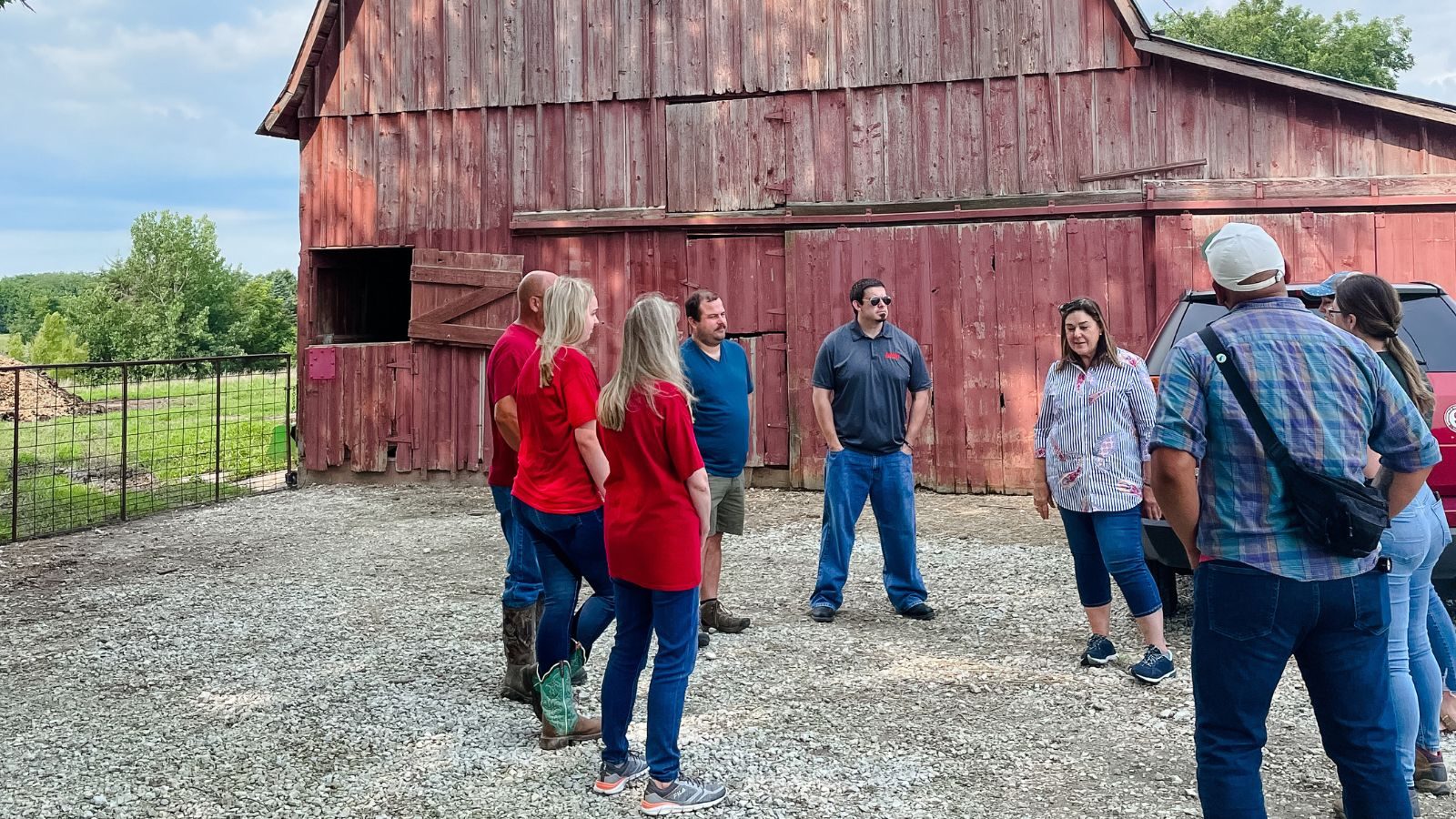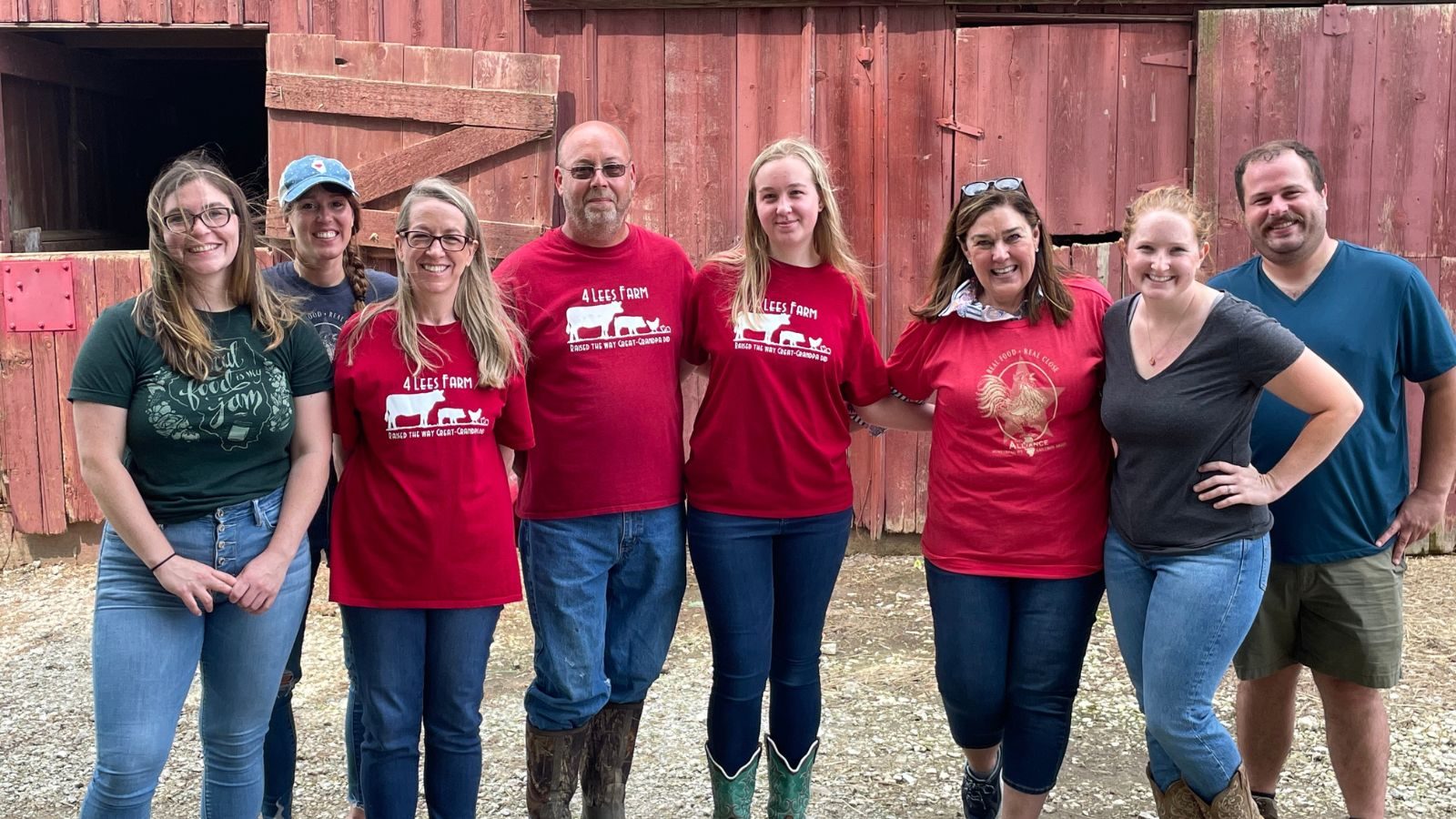Mitch Cave
4 Lees Farm Owner
There are many ways to empower a community. One of those ways is by connecting communities to locally sourced food. Mitch Cave, owner of 4 Lees Farm in Virginia, Illinois, saw firsthand how the IL-EATS program championed Illinois’ small farmers and the communities they call home. That is, until the Trump-Musk administration “froze” funding that supported programs like IL-EATS in February. But let’s be honest. These freezes are much more sinister. These federal funding cuts are hurting small farmers. Our state’s farmers don’t have the luxury of waiting around for the government to decide if the programs are worthwhile. Their livelihoods are on the line.
Supporting Small Farmers
The IL-EATS program in Illinois was part of the Local Food Purchase Assistance (LFPA) program established by the federal government. It once supported local growers by expanding their economic opportunities. It also deepened partnerships between growers and community partners. The program bought food from socially disadvantaged growers and distributed it at no cost to community members through local food banks. This program was building a stronger food system for Illinois.
Support for this program came from a variety of places. IEC was one of many statewide supporters—including Governor Pritzker—of this program. A large number of small and medium-sized underserved farms were also in support.

Mitch's Experience
Mitch Cave is one of the farmers impacted by the cuts to the IL-EATS program. While he is grateful that his original contract is being honored through the end of June, the problem is without the additional federal funding the program was said to be getting for the rest of the year, he now finds himself in a situation similar to the one he had prior to the implementation of the IL-EATS program. He is looking for options, but the truth of the matter is that he will most likely be seeking employment off of his family farm. This is an example of how these federal funding cuts are hurting small farmers.
Mitch describes his positive experience with the IL-EATS program below, and what it means now that it’s gone.
At 4 Lees, we appreciated that my products could be enjoyed locally by community members who otherwise might not have access to quality, local meat and produce. And, what’s even better, is the benefits extended far beyond even that. We were playing a part in building a stronger, more inclusive food system. By choosing local, the Illinois EATS program reduced food miles, supported sustainable practices, and nurtured the environment.
As a small farmer, we appreciated having multiple outlets for our meat and produce other than the farmers market. For many farmers, there aren’t a lot of options outside of farmers markets. And, unlike the farmers market, the EATS program is not weather-dependent. If it’s a rainy day, sales at the farmer’s market plummet.
With the EATS program, even if it was raining, I could still sell all my products. Like a lot of other farms, we have an online market. But the revenue from this did not compare to the revenue we were getting through the EATS program. Just one delivery to a local food bank tremendously helped my small farm’s bottom line in two ways.
First, that one payment helped me reinvest and expand our vegetable operation to serve even more consumers from local communities. With the EATS program, Illinois has the potential to provide and expand a dependable food system that helps small farmers. It also had the potential of adding stability to the food systems in Illinois for the future by creating the infrastructure needed for Illinois to grow more of the food we consume. During this program, we nearly doubled our production with zero loss or waste for 2024.
Two, it even led to a farm tour to showcase how I raise and grow products for the local community. On the tour, Central Illinois Food Bank employees were able to view the farm, take pictures, and ask a lot of questions. They got to see all the different stages of production.
The long-term financial benefits are impossible to ignore. The program provided our farm with a guaranteed source of income. If this program was extended, we would have been able to hire an employee and increase our production once again for 2025 and beyond. We were thrilled to be creating a more stable business model and helping out the community we call home.
VIDEO: 4 Lees Farm raises animals and grows crops using sustainable agriculture practices. Farms like this are a win for the environment and the local communities they’re part of.
Building Power with Our Decision-makers
Today, IEC is working with our members, state elected officials, and US legislators to fight for the life of this program and the livelihood of Illinois farmers.
On March 19, IEC joined a roundtable discussion with Governor Pritzker, US Congresswoman Nikki Budzinski, Illinois Department of Agriculture Director Costello, and farm advocates from around the state to lift up the impacts of funding cuts to programs like IL-EATS.
In April 2025, our team went to Washington, D.C. and met with 11 US House Representatives and Senate offices. We shared stories of our farmers back home in Illinois and discussed the need for LFPA programs to support programs like IL-EATS.
Overwhelmingly, our delegation agrees and would like to see these programs continue. We must hold them accountable to protect the program and farmers.
About the Author
Mitch Cave is the owner of 4 Lees Farm, a regenerative farm in Virginia, Illinois. 4 Lees Farm raises pastured pork, grass-fed and finished beef, pasture-raised chicken along with organic fruits and vegetables. Mitch uses regenerative practices to rebuild soil without the use of harmful chemicals, just like his great-grandpa did.

